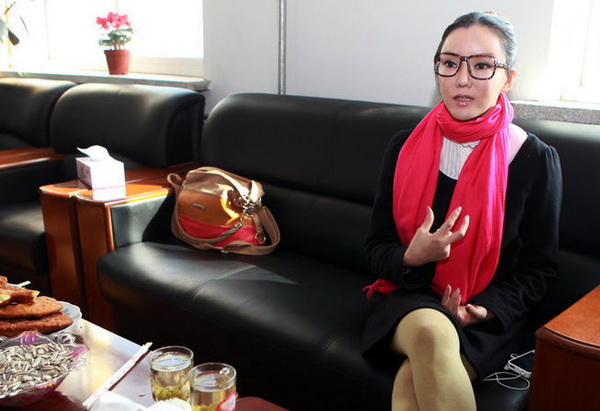


By Chen Libing (陈李冰)
Issue 605, Jan 28, 2012
Observer, page 45-46
Translated by Laura Lin
Original article: [Chinese]
When it comes to entertainment, the upbeat and always cheerful Americans are king. They can turn a solemn moment into entertainment, a ceremony into a festivity. Last month's inauguration ceremony for President Barack Obama‘s second term in office is the latest proof of that uniquely American way of embodying their belief in freedom through amusement.
Though not as impressive as his first inauguration four years back, there were still as many as 800,000 people from all over the United States who'd come to Washington D. C. to watch the ceremony and attend the parade. In order to experience the "pomp and ceremony of Democracy" (民主盛典) the public had to line up in the bitter cold for hours, and endure huge crowds and tight security. In fact President Obama had already been officially sworn in as President in a non-public ceremony in the White House the day before. But with millions tuning in on TV, the show must go on, and folk singer James Taylor and pop star Beyonce were a bigger hit than Yo-Yo Ma's cello performance four years ago. No one seems to notice that all of this happens amidst a particularly bleak political and economic atmosphere currently shrouding the United States.
This dynamic is much different in other part of the world, where the participation of celebrities from the world of entertainment in political events often causes controversy, and come with a heavy price for the stars.
Last year's case involving the Russian feminist punk-rock band, Pussy Riot, is one clear example. On the grounds that their "performance" last February at Moscow's Cathedral of Christ the Savior contained "religious hatred and hooliganism" three members of the band were convicted and sentenced to two years in prison.
This immediately sparked worldwide protests in solidarity with the trio. From the European Union to the White House to German Chancellor Angela Merkel, the French press, Madonna and Yoko Ono, the Western world rallied unanimously in criticizing the unfairness of Russia's judicial system and the harshness of the punishment. According to reports quite a number of Russian Orthodox believers were indeed angered by Pussy Riot's "performance" and have little or no sympathy for them. Still, only 44 percent of the Russian public were convinced that their trial had been a fair one.
Superficial and Unqualified
Meanwhile in China last month, there was a very different, though no less hot debate involving stars and politics. First, Annie Yi, a well-known Taiwanese singer, as well as a guest judge for China's Got Talent, ran into trouble with the Chinese authorities over comments she made on Weibo in relation to the controversy surrounding the censoring of a special end-of-year edition of the popular Southern Weekly newspaper.
At the same time, there was much debate about whether or not Stephen Chow (周星驰) and Diana Pang (彭丹), a Hong Kong comedian and an adult film star respectively, were qualified to be elected as political advisors of the Chinese People’s Political Consultative Conference (CPPCC).
It is all very different from when the U.S. entertainment industry and its stars step into the political limelight. The American public is generally more relaxed when controversy is sparked by an individual star's involvement in politics. President Ronald Reagan and Governor Arnold Schwarzenegger come straight to mind.
Here in China, entertainment celebrities are general criticized for being superficial and unqualified to pronounce on political issues, which many argue require a degree of professionalism. I was astonished to find out that so many people argued that this pretty Taiwanese star should focus on her career instead of blindly wandering about in the complexity of Chinese politics. Others even went as far as accusing her of deliberately causing a stir (炒作) in order to raise her profile.
I'm no fan of Annie Yi, nor do I think she is in a position to properly investigate press freedom and other such issues in China. But this is beside the point. A simple right and wrong must be pointed out. Whether one has the right to express one's personal opinion concerning politics is not to be mixed up with whether or not a viewpoint is valuable. These are two totally different matters.
If a citizen can automatically forfeit his qualification to participate in politics just because he is not experienced in the field, it excludes most of us.
There's no doubt that stars can use their charisma to influence their fans with their political position and political choices. Their position and viewpoint can be superficial and misleading. However, this does not justify keeping them silent.
Experiences tell us that in a free society the people with vision and insight may be those in the expected professions, but not always. Politics is complex, and very often implies interests from all directions. It is unlike the pure science of mathematics or physics, which are based on objective knowledge. In today's China, this is more true than ever.
News in English via World Crunch (link)

